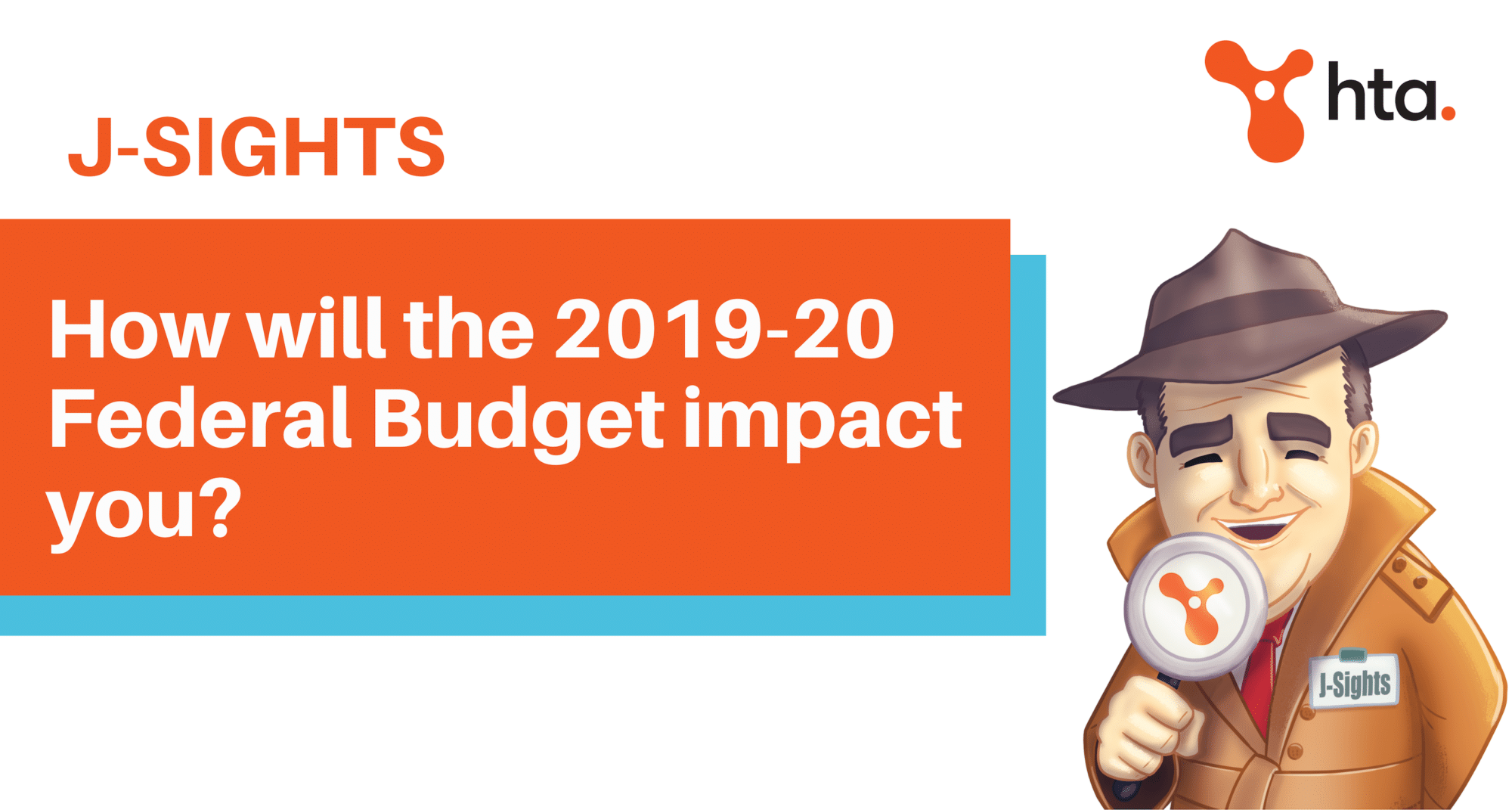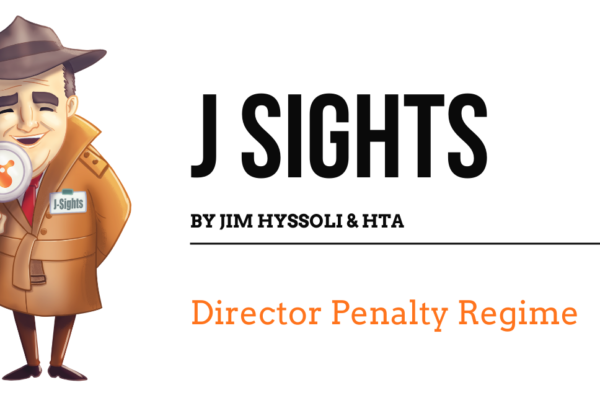
With the federal budget revealed last night, I’ve taken this opportunity to provide you with my ‘j-sights’ into the key take away from the 2019-20 budget and how it could impact you.
Budget highlights;
- Personal tax cuts – $19.5bn package of personal income tax cuts
- Small business – Instant asset write-off increased to $30k and expanded to businesses under $50m
- Infrastructure – $100bn in infrastructure projects across all States and Territories
- Regulators – $1bn ATO task force funding targeting multi-nationals and high net worth individuals
- Social Security – one-off energy assistance payment
Personal income tax
Targeted tax relief to low- and middle-income earners
This round of tax cuts:
- Increases the top threshold of the 19% personal income tax bracket to $45,000 from 1 July 2022
- Reduces the 32.5% marginal tax rate to 30% from 1 July 2024-25
What does this mean? The personal tax changes mean a tax saving of $855 for someone on an annual taxable income of $45,000 per annum until 2022, then $1,080 until 2024 onwards (check the tax relief calculator).
Business Owners
Instant asset write-off increased to $30k and expanded to businesses under $50m
The threshold for the popular $20,000 instant asset write-off will increase to $30,000* from Budget night until 30 June 2020 when it will potentially return to its original $1,000 level on 1 July 2020. We say ‘potentially’ because the threshold has been at or above $20,000 since 12 May 2015.
Accordingly to Mr Frydenberg ““[The measure will allow] a café to get a new fridge or grill, a plumber to buy new tools or a courier a new van,”.
Delayed start date to allow further consultation on Division 7A
Significant changes to the way Division 7A works were intended start taking effect from 1 July 2019. These reforms have now been pushed back to 1 July 2020.
Superannuation
Work test changes
The Government has announced that it will allow voluntary superannuation contributions (both concessional and non-concessional) to be made by those aged 65 and 66 years without meeting the work test from 1 July 2020 (i.e., from the 2021 income year).
Spouse Contributions
Individuals up to and including the age of 74 will be able to receive spouse contributions (with those 65 and 66 no longer needing to meet a work test). Currently, those aged 70 and over cannot receive spouse contributions.
Tax relief for merging superannuation funds
The current tax relief for merging superannuation funds is due to expire on 1 July 2020. The Government will extend this measure permanently.
Social Security
As announced, the Government will make a one-off payment to certain individuals to assist with paying energy bills and meet cost of living expenses. The payment will be exempt from tax and will be $75 for singles and $62.50 for each member of a couple.
If you’d like to learn more about the recent 2019-20 federal budget or require additional information, please don’t hesitate to reach out to your local accountant on 03 9810 3666.



